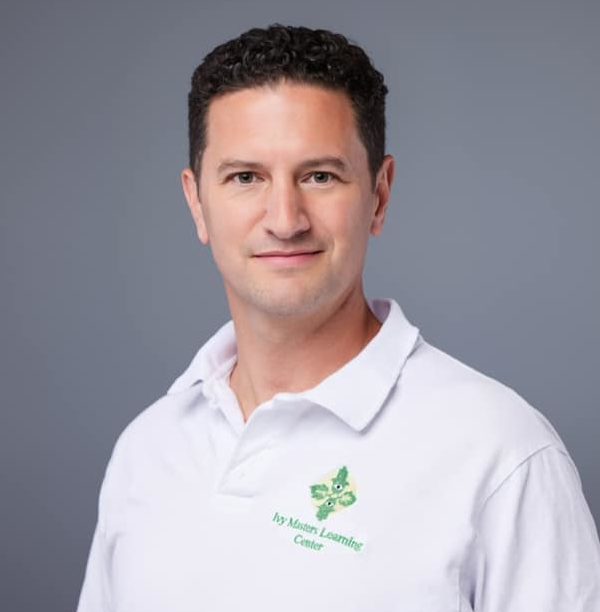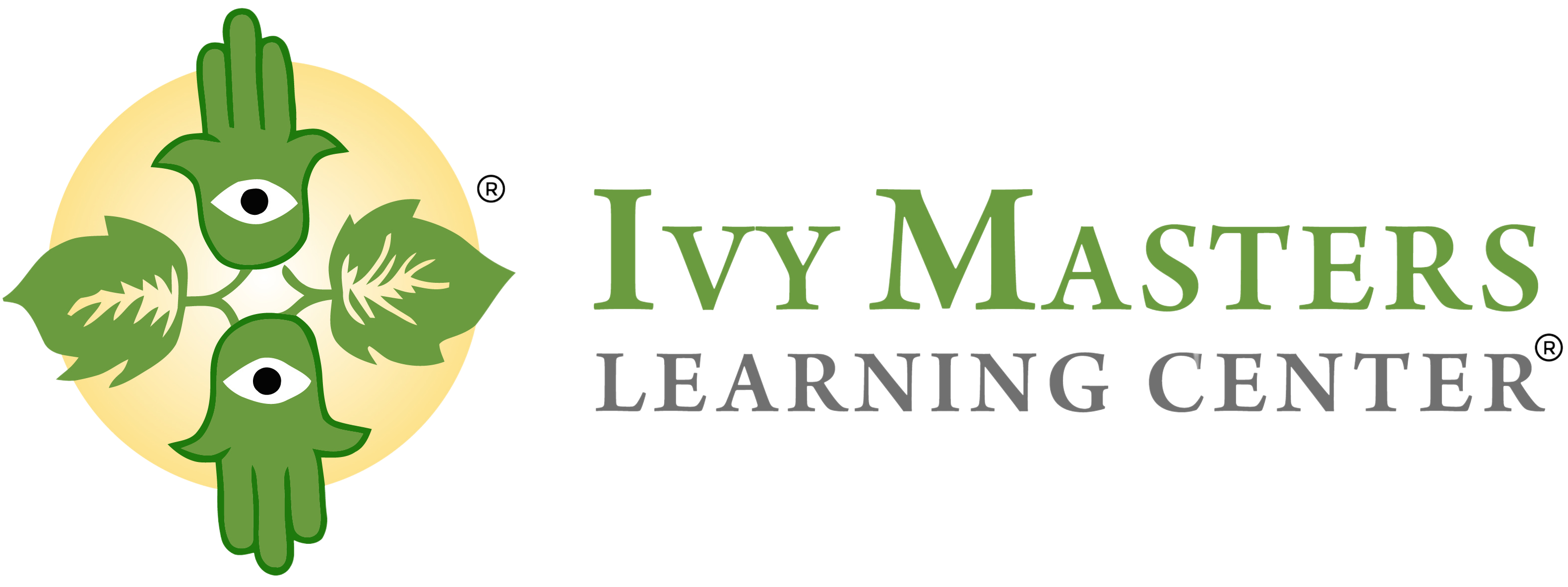OUR STORY
Navigating
Success Since 2002
If you love what you do, you never have to work a day in your life.
That was one of my grandfather’s favorite sayings and, to this day, it rings true for me.
I always knew I wanted to teach, but it took a while to discover exactly how that would play out in my life. I received my Masters degree in Education from the University of Pennsylvania in 1998 and immediately landed a teaching job, but by the end of that first year, I knew the traditional classroom environment wasn’t for me.
I decided to stretch my horizons and look for that proverbial job-that-doesn’t-feel-like-work. I worked at a nonprofit. I sold IT. I waited tables. I installed HVAC. None of them were the right career choice for me, but along the way, I gained problem-solving strategies and learned the value of customer service.
Then, in 2002, I had an epiphany. As an Ivy League grad, I’ve always passionately believed that students should never be held back from the college of their dreams because of their standardized test scores. That was the inspiration behind Ivy Masters Learning Center. I dropped $100 in a bank account, registered the company name, and have never looked back.

Our Mission
Your Success Story is Our Legacy.
Our experienced team has helped thousands of students reach their academic goals.
We understand your dreams and are committed to helping you achieve them.
Join our community and watch your potential transform into success.
FAQs
Frequently Asked Questions
As Steven Covey once said, “The main thing is to keep the main thing the main thing.” Here at Ivy Masters, we know that the purpose of the SAT, ACT, and academic tutoring is to open doors to college admissions.
Universities do not care which test students take. For that reason, we recommend students take a mock SAT (Digital Test 4) and a mock ACT (the most recent test). These tests will not only serve as a baseline score. It will enable us to identify which test the student naturally scores higher on. We can prepare for whichever test that is. You can sign your child up for the mock test HERE. The website will only show one mock test available at a time (they are only available 2 to 8 days before a given test day), but we run them every Saturday. After a student has taken the mock tests, but before you sign up for private or group lessons, let us know and we will give you a coupon code to reimburse you for the cost of the tests. These tests can be taken in-person or virtually. We recommend in-person since the real test is in-person. Mock tests are free to current Ivy Masters students.
Students can find out whether SAT or ACT is better by taking a mock test of each. While mock tests are official, released tests, taking one does not count towards college admissions. Oftentimes, parents want to use the PSAT to compare to the ACT, but the PSAT is out of 1520, not 1600, and is usually too old to get an accurate comparison. The date and scoring difference do not make it great to use as a baseline test.
We recommend at least a practice test to start (to establish a baseline score), one when prep is halfway done (to assess improvement) and one before the student takes their official test (as a dress rehearsal). That being said, students with the biggest score improvements are usually those who take mock tests every week.
This is the advantage of mock testing vs testing on your own:
- Sally might not be a “morning person.” She could be a rock star at 4pm, but she’s going to need to perform in the morning. Students arrive at our tests at 7:45am. They have to train themselves to perform well at that time.
- Most people’s attention spans are 2 hours. That’s why movies are 2 hours. On the SAT and ACT, students have to focus for a full 2 hours, 14 minutes and 3 hours respectively. Practice focusing for that long period of time will get students better at focusing for that long period of time.
- When a parent calls to tell me that Sally is a nervous test taker, we know that means that Sally gets so nervous that it hurts her performance. There are actually 2 types of stress—distress and eustress. Ask any athlete if he/she was nervous before and during their best performance and they will inevitably tell you that they were. That’s the eustress…that’s the good stuff. If Sally is a nervous test taker, taking mock tests with some consistency can bring down her level of stress from distress, to eustress.
Check out our podcast on the importance of mock testing: https://gettestbright.com/why-practice-tests-matter-so-much/
In the class, we go over half reading/writing and half math. Privately, we work a bit more on the student’s weakness. For example, if reading/writing is weaker, we will work on more of that. If math is weaker, we will work on more math. We will give anywhere from 35 minutes to 6 hours of work per week, depending on the student. Students should do each exercise, to the best of their ability, under timed conditions. We will typically assign a test and a math and a grammar drill each week to supplement weaknesses. Students should take all their notes during the lesson with a red pen, so they know exactly what to study between lessons. They should make sure they are able to do each problem without looking at their notes to ensure they can do that type of problem correctly on test day. Students should also review answer and explanations to questions they had incorrect by visiting https://www.youtube.com/@IvyMastersLearningCenter/playlists or by studying the explanations to any questions they had wrong in their book if no video solution is available. If no explanations are available, students can work backward from the correct answers. If they do not see why their wrong answer is wrong, and why the correct answer is correct, they should pick the question for review during the lesson.
Classroom (subject) tutoring is usually $40 to $70 per hour. SAT/ACT/AP/college level tutoring is $50 to $240/hour depending on the tutor. Most of our tutors are former students. We have a Cornell grad, one who goes to Johns Hopkins, 2 who scored perfect on ACT (achieved by 1 in 500), and two who scored perfect on SAT (achieved by 1 in 5,700), and one who has been tutoring SAT for longer than Paul has. (Paul has been tutoring since 1998, started Ivy Masters in 2002, and has been doing it full time since 2003.)
In 2023, the average class was 9 students.
Ivy Masters offers private, small group, and classroom instruction, both in-person and virtually for both SAT and ACT. Private lessons and small groups can be taught at Ivy Masters, at the home, at the library, or virtually depending on the tutor. Small groups are available for students who have friends they want to prep with.
Paul, the founder of Ivy Masters.
Students can (1) make up class a different day during the week or (2) can attend class virtually instead of in-person or (3) can have a recording of class emailed or (4) can (depending on the way the dates fall) make up the class about a month later. Please let the instructor know in advance.
We have a Free SAT and ACT Seminar/Webinar for parents, students, and teachers and free SAT student workshops throughout the year.
https://www.ivymasters.com/services/free-student-workshops/
https://www.ivymasters.com/services/free-sat-and-act-seminars/
Yes. You can book Sue here– https://www.ivymasters.com/services/college-admissions-essay-help/
Yes. You can book a free 30-minute consultation with Doreen here– https://www.ivymasters.com/services/college-admissions-advising/
Yes—book a free 15-minute consultation here:
